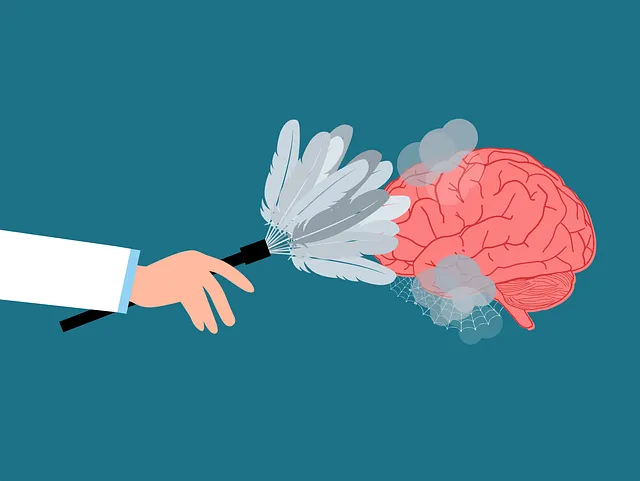Wheat Ridge's Kaiser offers comprehensive mental health services that prioritize social skills development as a key component of treatment. Their Mental Wellness Podcast Series and Burnout Prevention Strategies educate on stress reduction and emotional regulation. Social Skills Training (SST) equips patients with practical coping skills, communication strategies, and mood management techniques through role-playing and group discussions, fostering better social functioning and self-care routines. Kaiser's holistic approach goes beyond traditional treatment, empowering individuals to actively manage their mental wellness journeys.
Social skills training is a powerful tool in supporting individuals with mental health conditions, fostering better coping mechanisms and enhancing overall well-being. This article explores the intricate link between social skills and mental health, highlighting the significant role that facilities like Kaiser, with its mental health care services at Wheat Ridge, play in providing comprehensive support. We delve into effective training strategies for clinical settings, offering a roadmap to improve social interactions and overall mental resilience. Discover how these approaches can revolutionize care for those navigating their mental health journeys.
- Understanding the Link Between Social Skills and Mental Health
- The Role of Kaiser in Mental Health Care at Wheat Ridge
- Effective Strategies for Social Skills Training in Clinical Settings
Understanding the Link Between Social Skills and Mental Health

In today’s world, where mental health awareness is on the rise, recognizing the profound connection between social skills and overall wellness is more crucial than ever. Wheat Ridge residents seeking Kaiser’s mental health services often find that addressing social competencies is a pivotal aspect of their treatment plan. The link between these two factors is complex; poor social interactions can contribute to or exacerbate various mental health conditions, while enhanced social skills can act as a protective mechanism against burnout and promote positive mental wellness.
The Mental Wellness Podcast Series Production highlights this relationship by delving into strategies that foster meaningful connections, stress reduction, and emotional regulation—all essential components of a holistic approach to mental health care. Moreover, understanding the impact of social dynamics is particularly relevant for healthcare providers, as suggested in the Burnout Prevention Strategies for Healthcare Providers. By integrating risk assessment tools, such as those used by mental health professionals, into their practices, they can better support clients and navigate the intricate social landscapes that influence mental health outcomes.
The Role of Kaiser in Mental Health Care at Wheat Ridge

Kaiser plays a pivotal role in mental health care at Wheat Ridge, offering comprehensive services tailored to meet diverse needs. The healthcare provider’s presence signifies a commitment to ensuring accessible and quality mental wellness support for the community. With a range of specialized programs, Kaiser helps individuals navigate and manage their mental health journeys effectively.
At the core of Kaiser’s approach is the emphasis on coping skills development, burnout prevention, and self-care routine establishment. These strategies empower patients with essential tools to enhance their overall well-being. By addressing these aspects, Kaiser goes beyond traditional treatment, fostering a proactive environment that encourages individuals to take charge of their mental health.
Effective Strategies for Social Skills Training in Clinical Settings

Social Skills Training (SST) plays a pivotal role in mental health treatment, especially in clinical settings like Wheat Ridge’s Kaiser. Effective SST goes beyond traditional therapy by equipping individuals with practical coping skills development and communication strategies. These tools enable patients to navigate social interactions more confidently, enhancing their overall well-being.
At Wheat Ridge, specialists employ tailored techniques such as role-playing scenarios and group discussions to foster better mood management. By creating safe spaces for practice, patients learn to recognize triggers, express emotions effectively, and build supportive relationships. Integrating communication strategies into SST helps individuals with mental health conditions communicate their needs assertively while interpreting social cues accurately, thereby improving their overall social functioning.
Social skills training is a potent tool in addressing mental health conditions, particularly when delivered in clinical settings like those offered by Kaiser at Wheat Ridge. By understanding the intricate link between social abilities and psychological well-being, healthcare professionals can employ effective strategies to enhance patient interactions and overall mental health outcomes. Kaiser’s presence in Wheat Ridge exemplifies how specialized services can revolutionize mental healthcare, ensuring individuals receive comprehensive support tailored to their unique needs.






